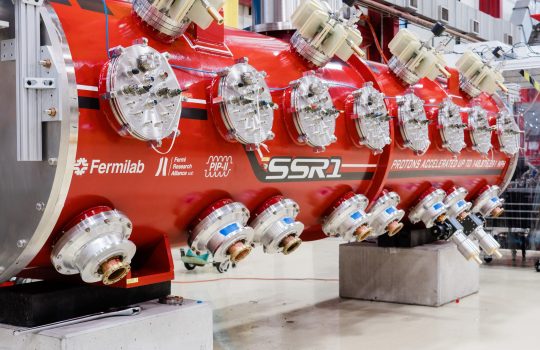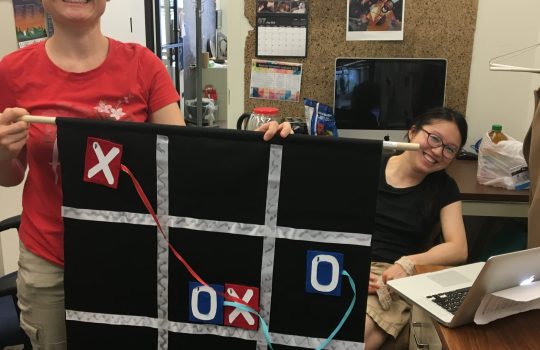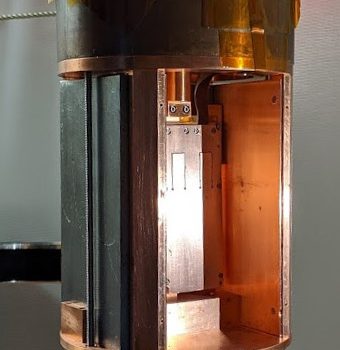Direct proof of dark matter may lurk at low-energy frontiers
From Scientific American, June 9, 2020: Dark matter researchers are reassessing theories about how dark matter particles lighter than a proton might appear in their detectors. In a recent paper, Fermilab scientists Noah Kurinsky and Gordan Krnjaic propose that a detector could find plasmons — aggregates of electrons moving together in a material — produced by dark matter.




